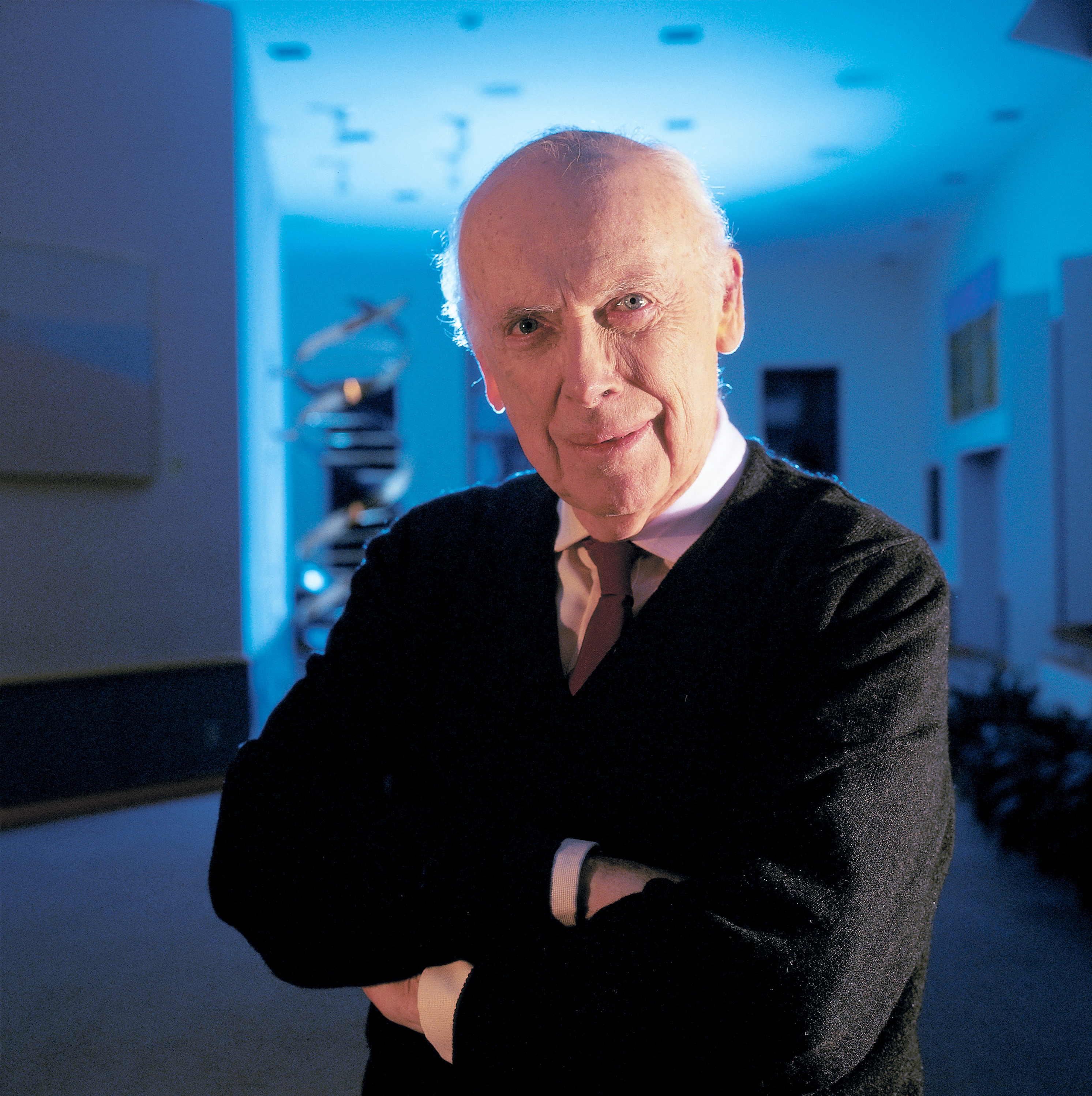“If you could make people with ten-point-higher IQs, we'd probably have fewer wars.”
What I've Learned: James Watson (2007)
James Dewey Watson amerikai molekuláris biológus. 1953-ban Francis Crickkel és Maurice Wilkinsszel közösen meghatározták a DNS kettős spirál-szerkezetét, ezért 1962-ben mindhárman fiziológiai Nobel-díjban részesültek.
Watson a Chicagói és az Indianai Egyetemen tanult, majd egyéves koppenhágai tartózkodás után 1951-ben a Cambridge-i Egyetem Cavendish Laboratóriumában dolgozott a DNS szerkezetének meghatározásán. 1956 és 1976 között a Harvard Egyetem tanára volt, 1968-tól pedig a Cold Spring Harbor Laboratory kutatóközpont igazgatói székét töltötte be. 1994-től tíz éven át az intézmény elnökeként, utána kancellárjaként tevékenykedett. 2007-ben rasszista nyilatkozata miatt felfüggesztették, de akkor bocsánatot kért, 2019-ben azonban az intézet minden tiszteletbeli címét visszavonta és minden kapcsolatot megszakított vele, miután ismét azt állította, hogy a fehérek, génjeik miatt intelligensebbek. Watson kutatói és kutatásszervezői munkássága mellett tudománynépszerűsítő könyveket is írt, néhányat magyarra is lefordítottak.
Wikipedia

“If you could make people with ten-point-higher IQs, we'd probably have fewer wars.”
What I've Learned: James Watson (2007)
“There is only one science, physics: everything else is social work.”
As quoted in Lifelines http://www.nytimes.com/books/first/r/rose-lifelines.html (1997) by Steven Rose
“If we don't play God, who will?”
The Lives to Come: The Genetic Revolution and Human Possibilities (1996)
“People say it would be terrible if we made all girls pretty. I think it would be great.”
As quoted in "Stupidity should be cured, says DNA discoverer", by Shaoni Bhattacharya, New Scientist (28 February 2003) http://www.newscientist.com/article/dn3451#.VHpLJzGsWPY.
What I've Learned: James Watson (2007)
“Be sure you have someone up your sleeve who will save you when you find yourself in deep s—.”
Succeeding in Science: Some Rules of Thumb (1993)
"Risky Genetic Fantasies" in The Los Angeles Times (29 July 2001), p. M4
“Never be the brightest person in the room. … We're all imperfect.”
James Watson: How we discovered DNA, TED talk (February 2005) http://www.youtube.com/watch?v=2HgL5OFip-0
1990s
Forrás: Foreword for Discovering the Brain (1992) by Sandra Ackerman, p. iii; often paraphrased: "The brain is the most complex thing we have yet discovered in our universe."
"All for the Good: Why genetic engineering must soldier on" TIME magazine, Vol. 153, No. 1 (11 January 1999)
1990s
“I find such a moralistic response to be profoundly immoral.”
Coda: Our Genes and Our Future (p. 433)
Forrás: DNA: The Story of the Genetic Revolution (2003/2017)
Coda: Our Genes and Our Future (p. 432)
Forrás: DNA: The Story of the Genetic Revolution (2003/2017)
Coda: Our Genes and Our Future (p. 430)
Forrás: DNA: The Story of the Genetic Revolution (2003/2017)
Forrás: DNA: The Story of the Genetic Revolution (2003/2017), Chapter 13, “Who We Are: Nature vs. Nurture” (p. 372)
Forrás: DNA: The Story of the Genetic Revolution (2003/2017), Chapter 11, “Genetic Fingerprinting: DNA’s Day in Court” (p. 300)
Forrás: DNA: The Story of the Genetic Revolution (2003/2017), Chapter 9, “Reading Genomes: Evolution in Action” (p. 242)
Forrás: DNA: The Story of the Genetic Revolution (2003/2017), Chapter 8, “Personal Genetics: The First of the Rest of Us” (p. 205)